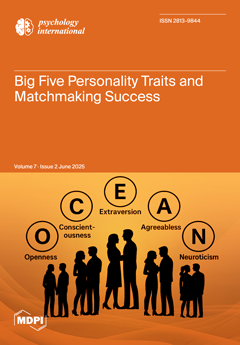Academic success in medical education is shaped by a complex interaction of biological predispositions, lifestyle choices, and mental health status. Understanding these factors is essential for student-centered educational reform and well-being support systems. This study investigates the association between biological traits, lifestyle behaviors,
[...] Read more.
Academic success in medical education is shaped by a complex interaction of biological predispositions, lifestyle choices, and mental health status. Understanding these factors is essential for student-centered educational reform and well-being support systems. This study investigates the association between biological traits, lifestyle behaviors, psychological stress, and academic outcomes among Vietnamese medical students. A cross-sectional survey of 1227 students from a Vietnamese medical university was conducted, with valid GPA data from 1038 participants. Data on biological (age, sex, BMI, blood group), lifestyle (diet, sleep, exercise, screen time, self-study), stress-related (DASS-21 scores, life domain-specific stressors), and social–academic factors (major, year, roommates) were collected. Linear regression models were applied to explore relationships with GPA. Lifestyle factors (R
2 = 0.032,
p = 0.001) such as eating dinner (
p = 0.001), self-study hours (
p = 0.005), and having breakfast (
p = 0.046) were positively associated with GPA. Biological variables had a smaller impact (R
2 = 0.013), with age showing a modest positive association (
p = 0.001). Mental health scores (DASS-21) explained 1.2% of GPA variance (
p = 0.007), with depression positively and stress negatively influencing performance. Academic year was a consistent predictor across models (
p = 0.001), and multivariate regression combining all categories (R
2 = 0.048,
p < 0.001) confirmed these relationships. In conclusion, regular mealtime patterns, particularly having breakfast and dinner, and consistent self-study routines are stronger predictors of GPA than biological or general stress markers. Educational institutions should promote healthy daily routines and academic mentoring.
Full article



